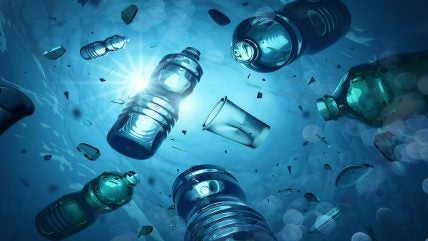
The UK has established a research hub dedicated to developing enzyme-based technologies for plastic recycling and material recovery.
The Preventing Plastic Pollution with Engineering Biology (P3EB) research hub, led by the University of Portsmouth’s Professor Andrew Pickford, has received £13m ($16.45m) in funding from UK Research and Innovation’s Technology Missions Fund and support from the Biotechnology and Biological Sciences Research Council.
The hub is a collaborative effort involving scientists from seven UK-based institutions, including the Centre for Environmental Biotechnology at Bangor University.
The centre intends to address the environmental challenge of plastic pollution by integrating engineering biology with other disciplines in the plastic waste sector.
Last week, the UK’s Department for Science, Innovation & Technology announced that the P3EB hub would receive £11.2m over the next five years from the UK Research and Innovation Technology Missions Fund.
This consortium of researchers is focused on developing and optimising enzyme-based plastic recycling technologies that can transform problematic waste streams into valuable commodity chemicals and novel materials.

US Tariffs are shifting - will you react or anticipate?
Don’t let policy changes catch you off guard. Stay proactive with real-time data and expert analysis.
By GlobalDataBangor University’s team, led by Professor Peter Golyshin, will spearhead research into discovering novel plastic-active enzymes from extremophilic environments.
The team aims to harness natural biochemical diversity and find stable enzymes capable of deconstructing and upcycling mixed plastic waste.
Using protein engineering, these robust enzymes will be optimised to withstand the industrial conditions of plastic deconstruction and combined to create synergistic enzyme cocktails for improved plastic waste recycling and upcycling.
Golyshin said: “By expanding our enzyme platform, we will establish technologically viable and environmentally friendly pathways for plastic waste deconstruction and recycling, thereby contributing to the development of a circular plastic economy.”



